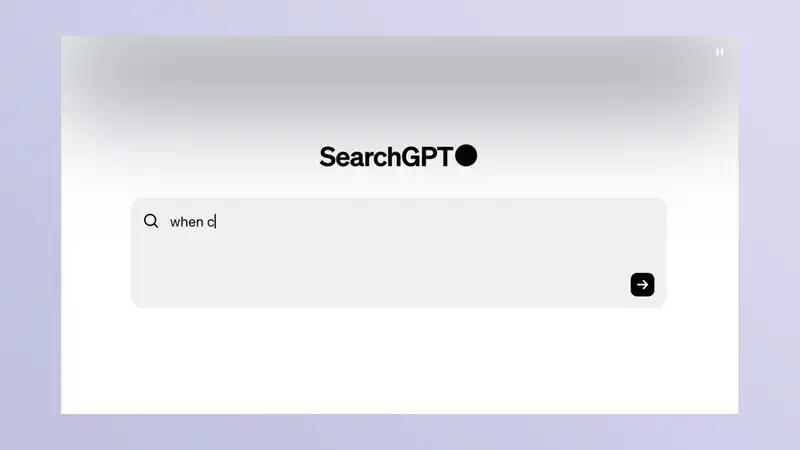OpenAI, the developer of the popular ChatGPT, has announced SearchGPT, a new search tool designed to compete directly with GoogleSearchGPT is designed to make finding things online a completely different experience It is currently in the prototype stage and will eventually be integrated into the main ChatGPT application
Sam Altman, CEO of OpenAI, posted on X, “We believe there is room to make search much better than it is today”
Google has tried to incorporate AI into its search results, but its quality remains questionable
Whether it will be better than Google's is another matter for another time But what I can say for sure, without even trying SearchGPT yet, is that it is different from Google and other traditional search engines
When searching on Google, most people type in what they want to know For example, if they are looking for ChatGPT, they type “ChatGPT” into the search box and see what comes up
With SearchGPT, however, you talk to the tool through your questions Instead of typing ChatGPT in the search box, you ask it what you want to know about it Like “Who created ChatGPT?” or “How much is ChatGPT?
OpenAI states, “We are now using AI to enhance this experience by highlighting high-quality content in a conversational interface with multiple opportunities for user engagement You will still find search results from your favorite websites, but you will look for them differently
Will it be better or worse than the search methods we are used to? Time will tell
Building on top of the conversational element of SearchGPT are follow-up questions As OpenAI explains, “You can ask follow-up questions as you would a conversation with a person, building on the shared context of each query”
In other words, in the above example, a search for “How much is ChatGPT?” could be followed up with “What do I get with a premium subscription?” or “How many people pay for ChatGPT?”
If you are talking to an expert, you will not just ask the first question and leave You would continue to ask more questions based on their answers, and OpenAI is trying to replicate that We expect to get the entire Internet, not just one expert
This is fairly self-evident Google has cluttered its search results with ads in recent years You have to scroll through multiple “sponsored” results before you get to the top article on the topic
Currently, SearchGPT has no ads, so the results you get are actually the best ones, at least according to whatever system the company uses to display its results 'We are now using AI to enhance this experience by highlighting high quality content in a conversational interface with multiple opportunities for user engagement'
Google search is much heavier than it used to be On mobile, you no longer get a simple search box when you visit a site Now you see extras like the Google Discover feed On desktop, you get a link to Gmail and a message inviting you to join Google's climate change initiative
In SearchGPT, the search box (or in this case the question box) is designed to help you get what you are looking for
Of course, the interface may not remain simple forever, especially as implemented throughout the ChatGPT experience (although the main chatbot interface is still relatively clean)
The most underrated difference between SearchGPT and Google Search is OpenAI's commitment to working with publishers and reporters to put journalism at the forefront We are committed to a thriving ecosystem of publishers and creators” We want to help users discover publisher sites and experiences while bringing more choice to search,” the company said
Nicholas Thompson, CEO of The Atlantic, said, “AI search will be one of the key ways people navigate the Internet
Unlike traditional ChatGPT, which only provides answers to questions, it answers questions, cites publications, and links for users who want to learn more As the OpenAI website explains, “SearchGPT is designed to help users connect with publishers by prominently citing and linking to them in searches”
OpenAI says all the right things, but has a difficult mountain to climb Google is synonymous with search, and it will be extremely difficult to unseat Google
“The extent to which SearchGPT will be able to compete with today's leading consumer search engines will depend in part on the actual speed and accuracy with which SearchGPT is used,” IDC's Conversational AI & Intelligent Knowledge Discovery Research Manager says Hayley Sutherland And these parameters will also help determine which use cases (types of search/question answering) SearchGPT is best suited for”
SearchGPT is promising, but we need to dig in and fully experience it ourselves










Comments